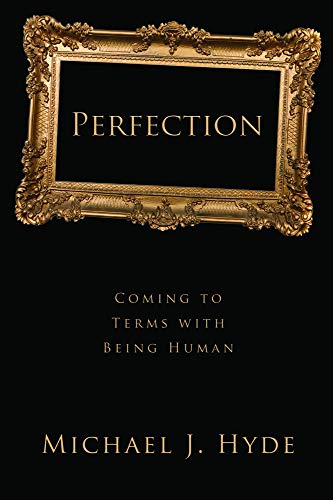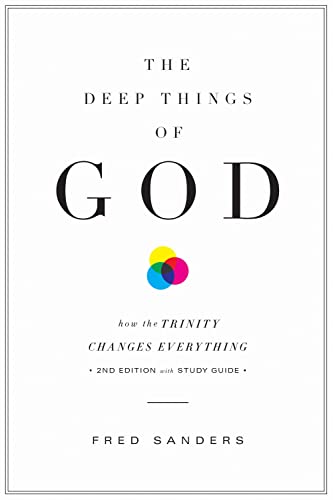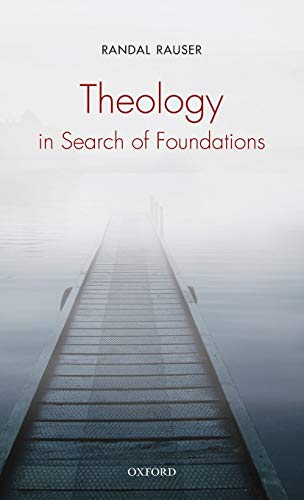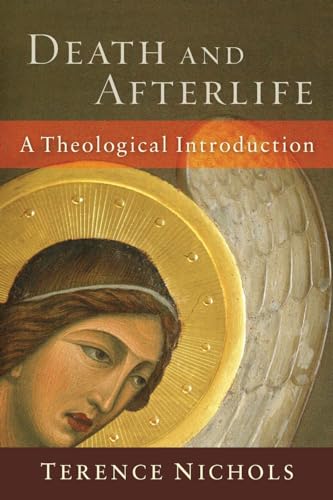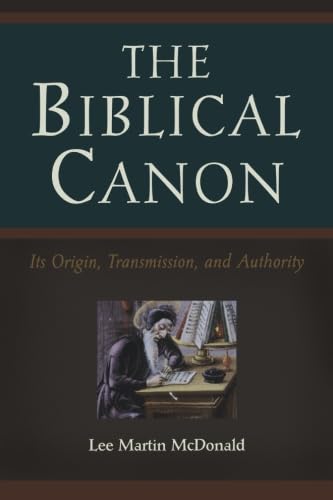Volume 35 - Issue 3
Terrible Beauty, Beauty, and the Plain Terrible
By Carl TruemanAbstract
The present age tends to regard polemics, theological controversies, and all-round doctrinal fisticuffs as, at best, a necessary evil, at worst, one of the most revolting aspects of Christianity. After all, while the wider culture is still capable of vicious invective against racists and homophobes, it generally regards disputes among Christians as akin to debates over how many angels can dance on the head of a pin...
The present age tends to regard polemics, theological controversies, and all-round doctrinal fisticuffs as, at best, a necessary evil, at worst, one of the most revolting aspects of Christianity. After all, while the wider culture is still capable of vicious invective against racists and homophobes, it generally regards disputes among Christians as akin to debates over how many angels can dance on the head of a pin, where the passions aroused are inversely proportional to the matters at stake and the whole palaver indicates deeper psychological insecurities of the combatants. The tastes of the wider culture have become, by and large, the tastes of the church; polemic is out of style.
Yet polemic has produced some moments of great beauty in church history, and we should not let the modern cultural antipathy to religious controversy blind us to that fact. I need to be somewhat nuanced here, lest I am misunderstood, and distinguish two kinds of beauty in polemic. The first I call the polemics where, in the words of Yeats, ‘a terrible beauty is born.’ Yeats was writing about the Easter Uprising in Dublin and about the way that the cause of Irish national independence gave, in a moment of explosive violence, a terrible, frightening grandeur to men who had, up to that point, occupied mundane common-or-garden jobs.
Church history too has its moments where ‘terrible beauty is born.’ As examples, one might mention Constantinople, 381, where over half a century of sometimes violent imperial and ecclesiastical conflict is resolved in the creedal definition of the Trinity. Then there is Worms in 1521, where Luther, his conscience bound by the word of God, makes his courageous stand against the massed forces of church and empire. Or one might think of Bonhoeffer, going quietly to death in a German prison camp, having refused to compromise his loyalty to Christ with loyalty to a vicious regime. The case are each different; but all are magnificent in their own way and made so by the defiance of violent anti-Christian power to which they each testify.
My amateur rule-of-thumb criterion for judging such terrible beauty is simple: if the event is clearly magnificent but I would not have wanted to be involved myself, then it qualifies as ‘terrible beauty.’ That is an almost purely subjective metric, but it seems to work. Sure, I can admire the fathers gathered at Constantinople or the monk standing for the gospel at Worms or the Lutheran pastor being hanged for conscience sake, but I praise God that it was not me. Terrible theological beauty is a little like terrible military beauty: for example, the battle of Waterloo is magnificent (what English schoolboy of the 1980s did not feel his chest swell with pride in history lessons at the thought of crushing the French in such a decisive way?) but who in their right mind would have wanted to fight in the battle? Battles, like theological controversies, are great and beautiful in retrospect, once you know that your side won and you managed to make it out alive.
There is another kind of polemical beauty, however, and this is of a kind that you might not even notice was polemical unless it was explained as such. Some of the most beautiful lines in church history have been penned precisely as beautiful, if quiet, polemic. I am thinking here specifically of the first question and answer of the Heidelberg Catechism. Before the thought of yet another dog-eared document of merely historical interest causes eyes to glaze over, hands to move to mouths in discreet stifling of a yawn, and conversations to turn to the weather, here is what the Heidelberg catechism actually says:
Question 1. What is your only comfort in life and death?
Answer: That I with body and soul, both in life and death, am not my own, but belong unto my faithful Saviour Jesus Christ; who, with his precious blood, has fully satisfied for all my sins, and delivered me from all the power of the devil; and so preserves me that without the will of my heavenly Father, not a hair can fall from my head; yea, that all things must be subservient to my salvation, and therefore, by his Holy Spirit, He also assures me of eternal life, and makes me sincerely willing and ready, henceforth, to live unto him.
This may not sound very polemical; in fact, it seems really rather pastoral; but make no mistake, in the context of the sixteenth century, it was a very polemical statement.
At the pastoral heart of the Protestant Reformation lay the doctrine of assurance, the idea that every individual believer could know—indeed, should know—that God was gracious to them. This was critical because, as the Reformers rightly saw, it lay at the heart of the Christian life, a life which was to be marked not by works done in a servile manner in the hope of thereby earning God’s favour, but rather by works done out of gratitude to God for his grace, and in a spirit of confident freedom. Medieval Catholicism was built upon a different strategy, where doubt of God’s individual mercy was a means by which to keep believers on the straight and narrow, so to speak. When the Heidelberg Catechism kicks off with a statement about assurance, it was also kicking Catholicism in the theological shins.
This is a significant dividing line between Protestants and Catholics from the Reformation to the present day. I am often asked in class about how Protestants should respond to Catholic friends. My response is usually two fold. First, it is appropriate (and, indeed, costs us nothing) to acknowledge the many good things that Catholicism has preserved over the centuries, not least the doctrines of the Trinity and Incarnation. We share a common catholic heritage, and one which they often value far more than evangelicals do, for they tend to have a deeper appreciation of history and of their own comparative irrelevance as individuals in comparison with the church as a whole.
Yet, for all of this great creedal theology, those who convert from Protestantism to Catholicism do sacrifice something crucial: the joy of real, evangelical assurance. Of course, we need to understand that the assurance of which the Heidelberg Catechism speaks is not the kind of assurance so common in our Christian culture today: the idea that God is a kind-hearted, sentimental chap, that fallen human beings are not really all that bad after all, and that at the end of the day everything will turn out for the best. Not at all. Reformation assurance is Pauline assurance: in ourselves, we are utterly lost and undeserving; but in his glorious grace, God himself has overcome the mountain that was sin and, against all hope and expectation, delivered us through Christ’s life, death, and resurrection, a deliverance that is made ours by grace through faith.
There are several fascinating aspects to the rhetoric in certain evangelical quarters about the Reformation being over. Most obvious is the failure of many of those who use such rhetoric to act in accordance with their stated convictions and thus return to Rome. Please do not lecture me about the Reformation being a mistake, or about all the differences now being resolved or negligible, if your church commitment seems to contradict this. If you truly believe the matter is now done and dusted, have the courage of your convictions.
The second thing that fascinates me is the general failure to address the issue of assurance as a source of difference between Protestants and Catholics. It really does not seem to matter anymore, at least to those carrying around the ‘Reformation = over’ banners. Strange, for it was central to the Reformation protest and is still surely central to pastoral practice today. Thus, to argue that the Reformation is over is to argue that assurance does not matter anymore. My suspicion is that that is the case not for theological reasons, not because the two traditions have resolved their differences, but because the whole notion of assurance, and the lack thereof, has become nonsense for most Christians. And that speaks of a religious world where the bases for lack of assurance (the holiness of God and the seriousness of sin) are no longer of any major consequence. If assurance is not an issue, it is likely because you have a sub-biblical view of God’s holiness and a sub-Pauline view of human sin; and if this is the case, then the vanishing distance between Protestants and Catholics should not be a cause of comfort or rejoicing for either; rather, it speaks of the secularization and the worldliness of the Christian mind. If polemics can have a terrible beauty, sometimes anti-polemics and peace can be just plain terrible.
Carl Trueman
Carl Trueman is Professor of Biblical and Religious Studies at Grove City College in Grove City, Pennsylvania.
Other Articles in this Issue
Most of our readers are theological students and pastors...
The Dazzling Darkness of God’s Triune Love: Introducing Evangelicals to the Theology of Hans Urs von Balthasar
by Stephen M. GarrettJürgen Moltmann observes that Christian theology and the Church face “a double crisis: the crisis of relevance and the crisis of identity...
Plots, Themes, and Responsibilities: The Search for a Center of Biblical Theology Reexamined
by Daniel J. BrendselIn the prolegomena to his “approach to biblical theology,” Charles H...
Since the mid-twentieth century biblical scholars have increasingly accepted that the texts of the Bible must be interpreted in terms of their literary genres...
Not many voices are raised these days in support of individualism...


